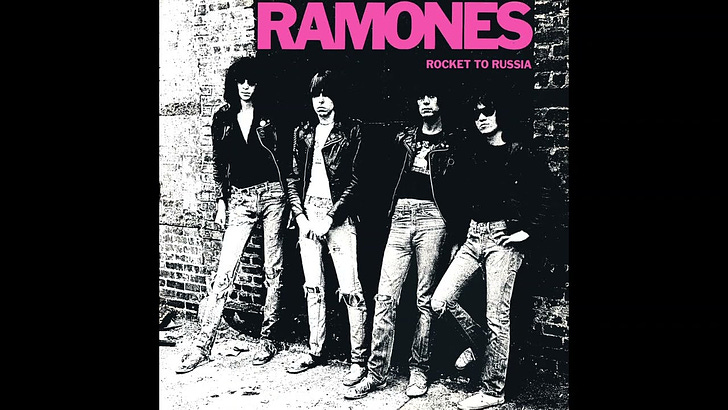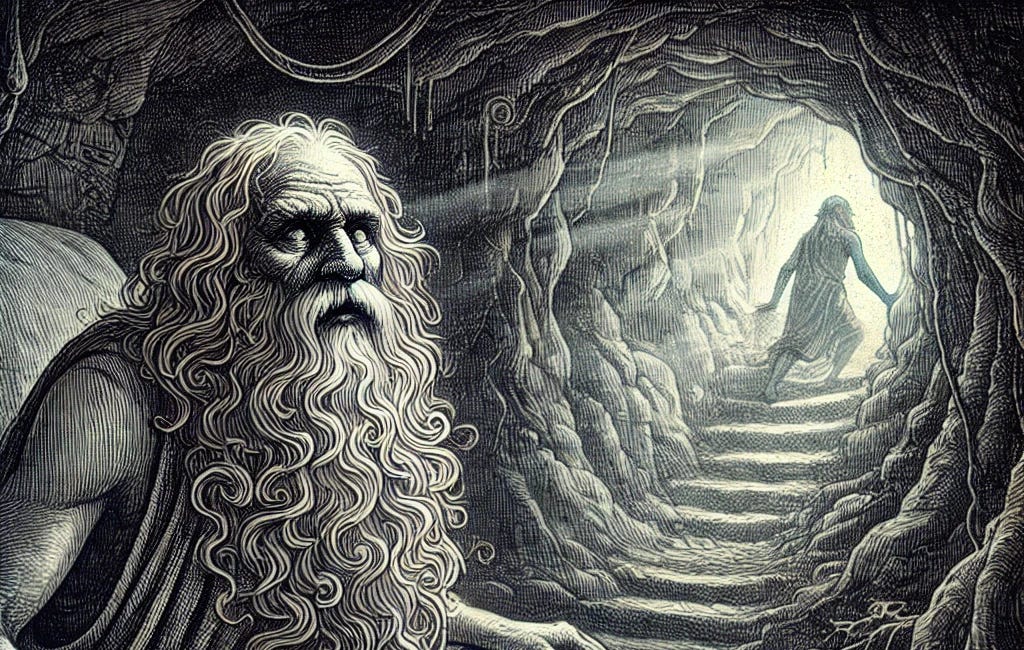Cretans are people from the island of Crete.
This seems pretty straightforward and intuitive, and that’s how a lot of names arise: places of origin are often echoed in family names. Riverbank or Ford both refer to important places near water, and if you go far back enough, you’ll probably find an ancestor who came from one of those areas, giving their descendants a surname that stuck.
Besides geographic features, last names often arise from names of cities, or even an entire island. That’s what happened with the island of Crete, home of the ultra-ancient Minoan civilization, where Greek culture is said to have originated.
There was a fellow there called Epimenides who once posed an excellent thought experiment we call the Liar’s Paradox today. He was from Crete, and my writing about that is why we’re here today:
All Cretans Are Liars
2600 years ago, give or take, a fellow named Epimenides supposedly lived in Knossos, on the island of Crete. I say supposedly because Epimenides is one of those half-legendary types who may or may not have been a real person.
Reader and fellow Substacker
asked a great follow up question about the origin of the word cretin, and how similar that is to the word Cretan.Today, cretin tends to mean the same thing as dummy. David’s obvious question (and mine) was whether folks thought all the people living on the island of Crete were mentally deficient, or what. In other words, did the word cretin arise from the word Cretan?
If you like the Ramones, listen to their song Cretin Hop for a moment:
This song opens their classic 1977 Rocket to Russia, and it’s just… well, fun. The Ramones aren’t going to be much help on our etymological journey today, but damned if I don’t find my toes tapping every time I put this record on.
Instead, we’ll need to journey backwards in time.
Tracing a word back like this reveals a lot about how we got to now. Go back three hundred years, and you only have the word Cretan, but not cretin. Take a much shorter jump back to the last century, and cretin was commonly used to refer to people of lower intellect.
That’s because there was a group of people from the Alpine region of France who were born with a condition called congenital hypothyroidism. The origin of congenital is well covered here, and it simply means born with. Hypothyroidism uses the root hypo (reduced or not enough) to imply that the thyroid gland isn’t able to do the work it needs to do.
Some of this work involves brain development, and if the thyroid isn’t active in regulating chemicals going in and out of the brain, then this development simply doesn’t take place. In other words, congenital hypothyroidism can cause a child to grow up with a serious mental deficiency if left untreated.
Today, we have treatments like synthetic thyroid medication that kids with congenital hypothyroidism can take every day, living otherwise normal cognitive lives. Two and a half centuries ago in France, this was very much not the case.
This particular condition usually stems from a lack of iodine, which the thyroid needs to make the complex web of chemicals that talk to your brain. If an expectant mother doesn’t eat enough iodine, then the developing fetus doesn’t get enough iodine, and thus the strong potential for congenital hypothyroidism.
Sensibly enough, the people who met and got to know these individuals wanted to remember that they were a part of the community. The word they used to describe them was chrétien in their thick Alpine accent, and the way it sounded to the ears of the people in Paris was more like crestin.
Chrétien meant “Christian”, and it was designed to remind the people of the Alpine region that they, too, were Christians like them. This wasn’t some kind of religious propaganda or zealotry, but instead a way to remind everyone nearby of the shared humanity with these cretins, as the word sounded to British ears.
Now, language can take some fascinating twists and unexpected turns, and that’s certainly what happened with the word cretin. At first, it was invented to invoke sympathy for those suffering from cognitive disease.
This cemented the word into the medical literature during the 18th century, and it became a lot more clinical in nature. The word began to feel more like a catchword for anyone with any type of intellectual disability, ultimately opening the door for much more vulgar contexts.
If you watch a lot of 20th century movies or television, you’ll probably hear the word cretin used as an insult an awful lot. This was certainly the case during my own childhood.
Today, the word has morphed once again. The term is generally considered to be offensive today, like in the same way the word retarded has morphed over my own lifetime. Gradually, more and more people seem to be returning to the empathy shown by that Alpine community three centuries ago.
The more empathy, the better.






Been around the world and found
That only stupid people are breeding
The cretins cloning and feeding
And I don't even own a TV
Meanwhile a board-certified cretin with the speech patterns of a four year old could very well become the next President of the US